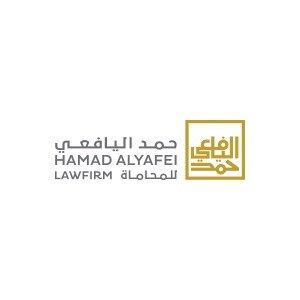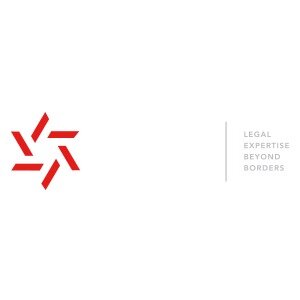Best Art & Cultural Property Law Lawyers in Doha
Share your needs with us, get contacted by law firms.
Free. Takes 2 min.
List of the best lawyers in Doha, Qatar
About Art & Cultural Property Law in Doha, Qatar
Art & Cultural Property Law in Doha, Qatar, encompasses legislation and legal practices related to the protection and management of cultural heritage and art. This field of law is crucial in a region that places significant importance on its rich cultural legacy and modern art scene. With high-profile museums, galleries, and cultural institutions present in Doha, the legal landscape ensures both the preservation of Qatar's heritage and the regulation of contemporary art dealings. Lawyers specializing in this field navigate complex issues such as art acquisition, repatriation of cultural property, intellectual property rights, and compliance with international treaties and conventions.
Why You May Need a Lawyer
There are several scenarios where individuals or institutions might require legal assistance in the field of Art & Cultural Property Law in Doha:
- Acquiring or selling art pieces, ensuring that transfers abide by both local and international laws.
- Legal disputes over the ownership of cultural property or stolen artifacts.
- Compliance with Qatari regulations regarding the import and export of cultural items.
- Advisory services for museums or galleries on the legal aspects of exhibitions.
- Intellectual property issues related to contemporary art.
- Guidance on the repatriation of culturally significant artifacts.
Local Laws Overview
Qatar has established specific regulations to safeguard its cultural and artistic heritage. Key aspects of local laws include:
- The management of cultural heritage sites and artifacts, ensuring they adhere to the Antiquities Law.
- Strict monitoring of art transactions to prevent illegal trafficking and sale of protected items.
- The necessity for permits and documentation to import or export cultural property.
- Legal requirements for cultural institutions regarding the display and maintenance of art.
- Protection of intellectual property rights related to artworks, ensuring creators retain their entitlements.
Frequently Asked Questions
What is considered cultural property under Qatari law?
Cultural property in Qatar is generally defined as artifacts, artwork, manuscripts, and other historically or artistically significant items that are integral to the cultural heritage of the nation.
Do I need a permit to bring my art collection into Qatar?
Yes, you typically need a permit and full documentation to import art into Qatar, especially if the items are of significant cultural value.
Can I sell an artwork that is part of Qatar's cultural heritage?
You need legal clearance to sell any art considered part of Qatar’s cultural heritage, and the transaction must comply with specific regulations governing such sales.
How are intellectual property rights protected for artists in Qatar?
Qatari law provides robust protection for the intellectual property rights of artists, including copyrights and moral rights over their creations.
What should I do if I find a cultural artifact in Qatar?
If you discover a cultural artifact, you are required to report it to the relevant authorities immediately, as unauthorized possession or trade is illegal.
How do international treaties affect art law in Qatar?
Qatar is a signatory to several international treaties and conventions, which shape national laws and practices in art and cultural property protection.
Are there penalties for violating cultural property laws in Qatar?
Yes, there are significant penalties, including fines and imprisonment, for violating laws regarding cultural property and heritage protection.
Is it possible to export an artwork from Qatar for an exhibition?
Yes, but you must comply with Qatari regulations, securing the necessary permissions and documentation for temporary export of artworks.
What are the responsibilities of museums in preserving cultural property?
Museums in Qatar must ensure the preservation, correct documentation, and lawful acquisition of items, adhering to both local and international standards.
How can disputes about art ownership be resolved?
Disputes over art ownership can be resolved through legal channels, including negotiation, mediation, or court proceedings as needed.
Additional Resources
For further guidance on Art & Cultural Property Law in Doha, consider consulting:
- The Ministry of Culture and Sports
- Qatar Museums for regulations and guidance
- International Council of Museums (ICOM) standards
- Local and international Art & Cultural Property Law journals and publications
Next Steps
If you require legal assistance in Art & Cultural Property Law in Doha:
- Consult with a specialized attorney who has expertise in local and international art law.
- Gather all relevant documentation related to your case or transaction.
- Reach out to local cultural institutions for initial guidance and resources.
- Consider joining art law associations for networking and expertise.
Taking these steps can help you effectively navigate the complexities of Art & Cultural Property Law, ensuring compliance and protection of your interests.
Lawzana helps you find the best lawyers and law firms in Doha through a curated and pre-screened list of qualified legal professionals. Our platform offers rankings and detailed profiles of attorneys and law firms, allowing you to compare based on practice areas, including Art & Cultural Property Law, experience, and client feedback.
Each profile includes a description of the firm's areas of practice, client reviews, team members and partners, year of establishment, spoken languages, office locations, contact information, social media presence, and any published articles or resources. Most firms on our platform speak English and are experienced in both local and international legal matters.
Get a quote from top-rated law firms in Doha, Qatar — quickly, securely, and without unnecessary hassle.
Disclaimer:
The information provided on this page is for general informational purposes only and does not constitute legal advice. While we strive to ensure the accuracy and relevance of the content, legal information may change over time, and interpretations of the law can vary. You should always consult with a qualified legal professional for advice specific to your situation.
We disclaim all liability for actions taken or not taken based on the content of this page. If you believe any information is incorrect or outdated, please contact us, and we will review and update it where appropriate.
















